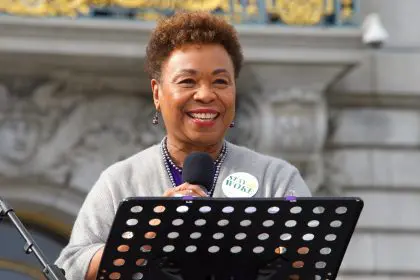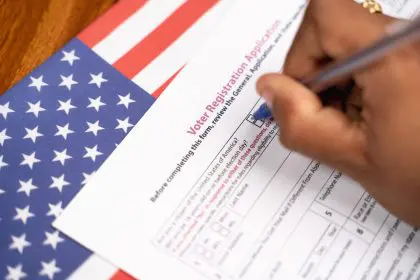 Across the nation, Republican state legislatures and governors are pushing the idea of requiring that voter’s present picture identification at the voting booth. The GOP is rewriting voting laws in at least 13 states thus far and more may be on the horizon. These efforts are being implemented under the guise of “fraud prevention.”
Across the nation, Republican state legislatures and governors are pushing the idea of requiring that voter’s present picture identification at the voting booth. The GOP is rewriting voting laws in at least 13 states thus far and more may be on the horizon. These efforts are being implemented under the guise of “fraud prevention.”
In South Carolina, Governor Nikki Haley and Republicans, although there is no evidence of fraud in any recent elections, have changed laws to require picture IDs at the poll in order to vote. Just last week Governor Scott Walker of Wisconsin and Governor Rick Perry of Texas signed into law the requirement for a valid picture ID to vote. This week, in Florida, Governor Rick Scott is expected to sign a similar requirement into law. In Ohio, changes will reduce the number of provisional ballots cast on election day and do away with the five-day period in which new voters can register and then immediately vote, a rule that some say invited fraud.
Democrats argue that these laws are aimed to discourage voters, particularly those who don’t have photo IDs, typically the poor and minorities. They also contend that such laws are equal to those implemented, albeit unconstitutionally, during the period of Jim Crow in America where literacy tests and poll taxes were put in place to keep poor whites and African Americans from participating in voting.
Although the 15th amendment forbids laws that obviate voting based on race, and the Voting Rights Act of 1965 protects the rights of minority voters and eliminates any voting barriers obstructing voters rights, the Republican Party strongly support these measures.
Strange, it seems, given that these strict constitutionalists cannot point to any reference in the constitution’s bill of rights requiring an ID to vote. Another concern is that many, including disabled, students and the elderly, may not have “officially” accepted IDs, such as passports or driver’s licenses. GOP-controlled statehouses nationwide are also restricting early voting and imposing stricter rules on those who can register to vote.
These changes, for some, equate to a new poll tax. IDs cost money, and some people just don’t have the money to get them. A study conducted by the New York University’s Brennan Center in 2006, claims that 11 percent of the American voting-age public — that means tens of millions of people — don’t have a photo ID.
–torrance t. stephens, phd
















